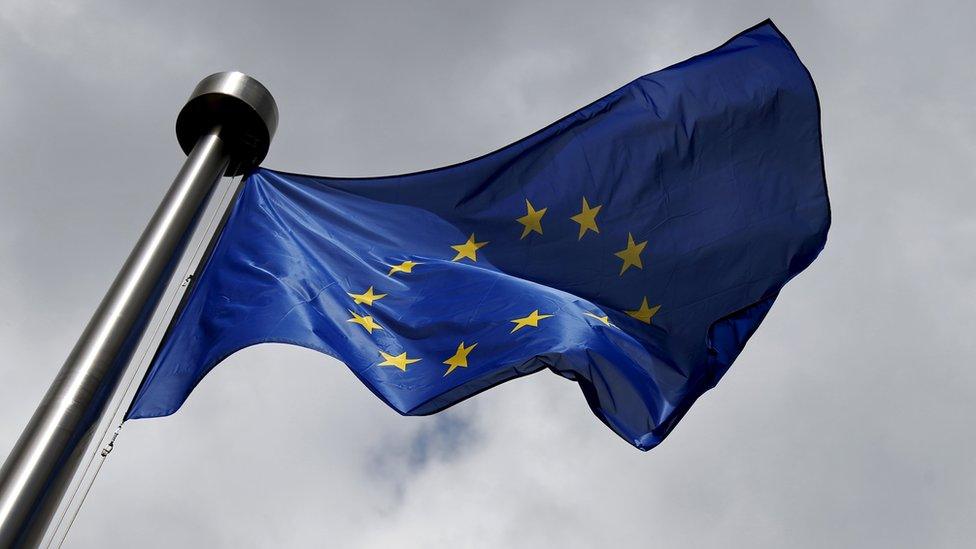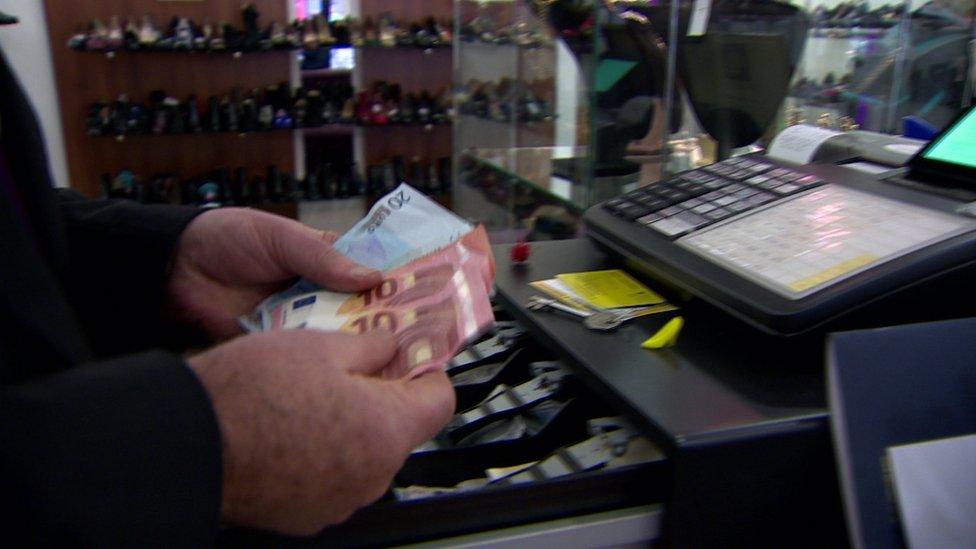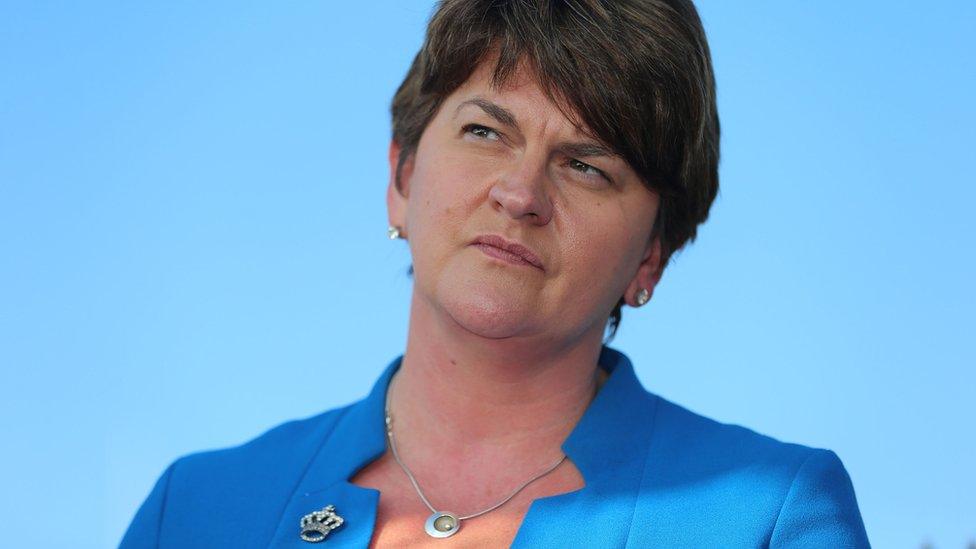The Brexit debate: facts and figures versus hearts and minds
- Published
- comments

So, is Northern Ireland better off inside or outside the European Union?
The Social Democratic and Labour Party (SDLP) leader Colum Eastwood, who visited Brussels this week, is in no doubt.
He described the prospect of the UK's withdrawal from Europe as "the biggest immediate threat to the economy of Northern Ireland and to the island as a whole".
He insisted a Brexit - the inelegant shorthand for Britain leaving Europe - "would undermine and destabilise the fabric of successive Anglo-Irish agreements".
It would "undermine and destabilise our north-south institutions", he added, and would "resurrect borders and resurrect barriers for business".
Bureaucracies
In Northern Ireland Questions in the House of Commons, the Democratic Unionist Party's (DUP) Sammy Wilson took the opposite view.
He maintained a vote to leave the EU would "help the Northern Ireland economy insofar as it would release £18bn every year for expenditure on public services".
He also said it would "enable us to enter a trade agreement with growing parts of the world and release us from the stifling bureaucracies of Europe".
Finance Minister Mervyn Storey, Mr Wilson's DUP colleague, attended an event this week to welcome the allocation of more than £400m in EU peace and cross-border funding for Northern Ireland.
Earlier this month, Emma Pengelly, another DUP minister, described the peace money and the European Task Force on Northern Ireland as "essential to making Northern Ireland work and building that better future we want to see".
Calculating
At the same time, DUP politicians tell you it is only right that Northern Ireland should get its share, pointing out that the UK puts £1.50 into the European pot for every £1 it gets back.
In the Commons, the SDLP, the Scottish National Party and the Labour Party appeared to be intent on exposing the difference between what they termed the "mixed messages" emanating from the Eurosceptic Northern Ireland Secretary Theresa Villiers and Ben Wallace, her Europhile junior minister.

The impact on trade across the Irish border if the UK leave the EU is one topic of heated debate
When it came to calculating the amount Britain puts into Europe, Mr Wilson set the bar high at £18bn.
Both the DUP's deputy leader Nigel Dodds and First Minister Arlene Foster recently quoted far more conservative estimates of about £9bn.
That, coincidentally, is about the same amount as Northern Ireland's fiscal deficit with Westminster, according to the latest Stormont budget.
This BBC backgrounder opts for a UK EU contribution figure of £11.3bn.
Barrenness
Mr Dodds told the BBC's Question Time that Northern Ireland and the UK could survive quite well outside the EU.
Both he and Mrs Foster are sticking to the official DUP line that they will not make their minds up definitively until Prime Minister David Cameron has completed his negotiations for EU reform.
But given Mr Wilson's belief that Mr Cameron's renegotiation is doomed to fail, and the DUP MEP Diane Dodds' previous criticism of the prime minister's "barrenness of ambition", it appears almost certain that the DUP will end up campaigning for EU withdrawal, together with the Tradional Unionist Voice and the UK Independence Party.
The SDLP, Sinn Féin and the Alliance Party will be in the pro EU camp.
The Ulster Unionists are still in wait-and-see mode.
Clarity
If Mr Cameron does opt for a summer referendum, voters in Northern Ireland will barely have time to recover from May's assembly election before they are asked to go to the polls again.
The campaign will no doubt feature plenty of financial arguments, not just about the UK's membership fees but also regarding the impact of any withdrawal on future trade between the UK and the rest of the EU.

Arlene Foster says she will not make her mind up until David Cameron completes his negotiations on EU reform
Mrs Foster told me she would like more clarity about Westminster's plans for Northern Ireland's financial subvention in the event of the UK leaving the EU and the consequent loss of peace and cross-border cash.
Whether she gets such clarity is doubtful, given that the prime minister may be reluctant to contemplate such a possibility.
Scaremongering
Away from the numbers game, with the Irish government watching on with concern and nationalists and unionists likely to be polarised, expect plenty of good old-fashioned traditional politics.
Sinn Féin MEP Martina Anderson has said a Brexit "could see the re-emergence of passport checkpoints and customs controls" along the Irish border that would hinder "free movement and disrupt the lives of nearly a million people living in the border region".
Mrs Foster said that is "scaremongering" and appears convinced that "practical solutions" will mean cross-border trade and the free movement of people would continue unaffected.
Just like the Scottish independence referendum, the EU campaign in Northern Ireland may ultimately be more about hearts and minds than it is about facts and figures.